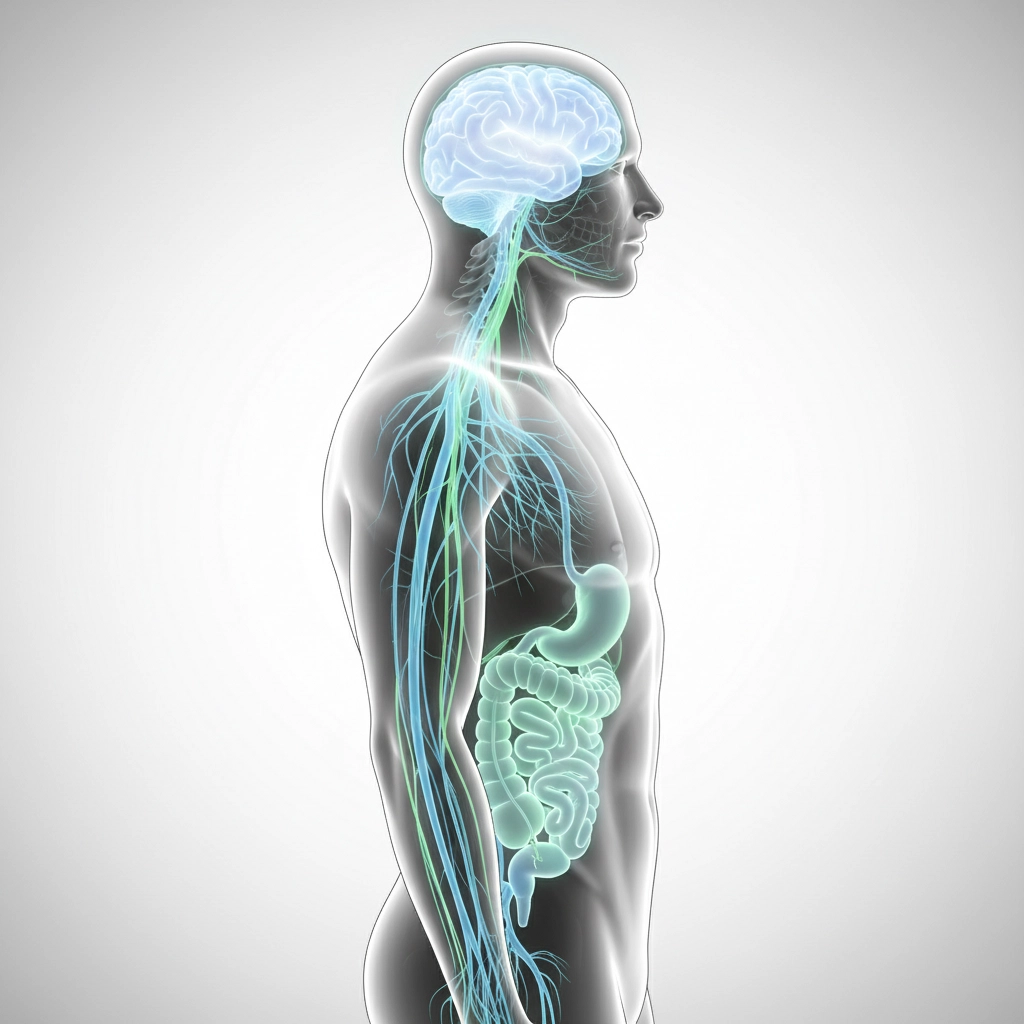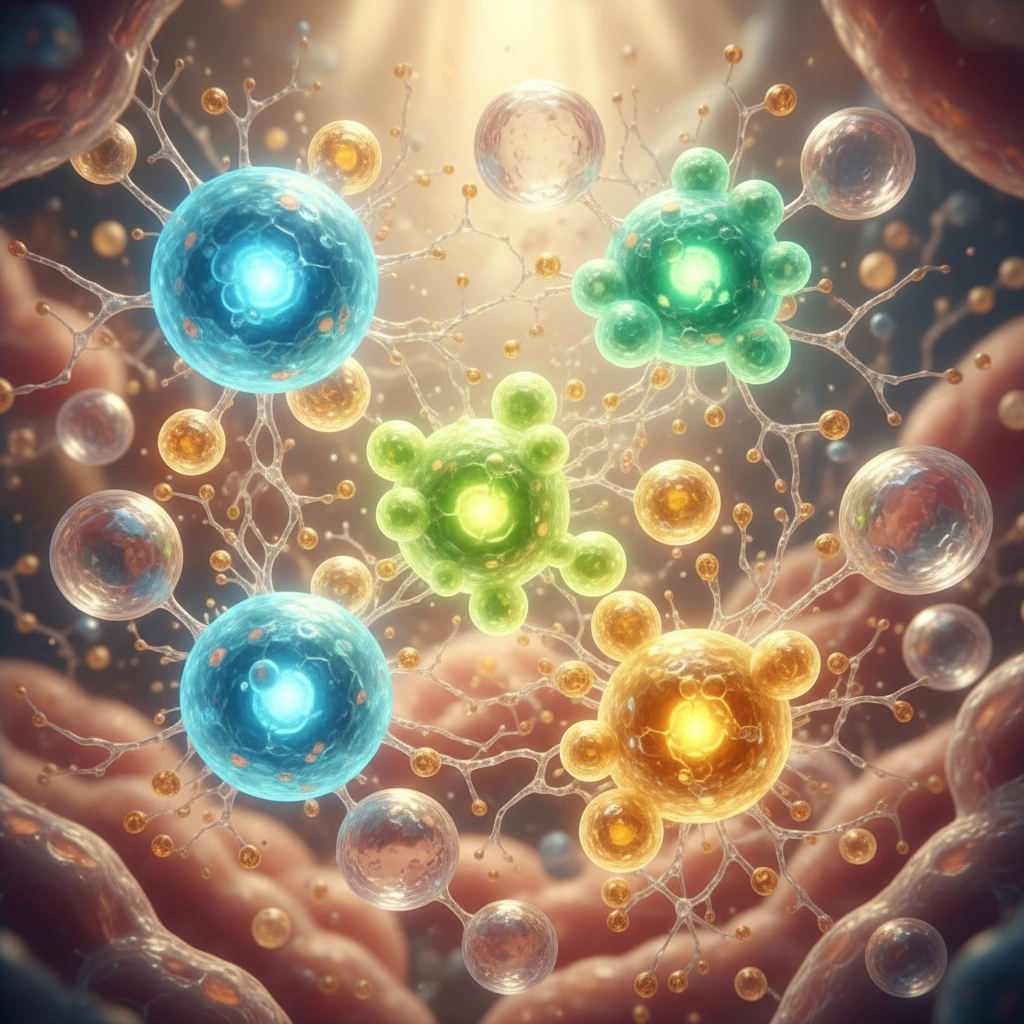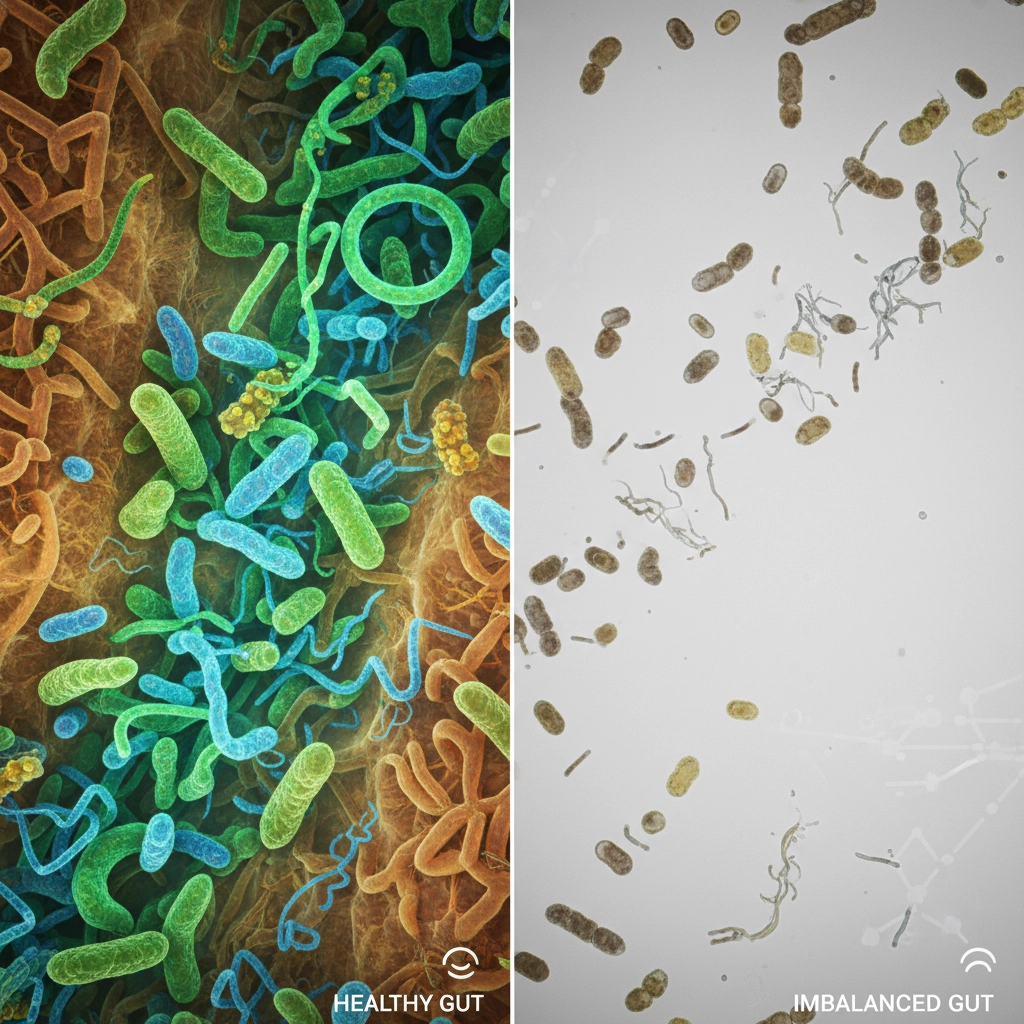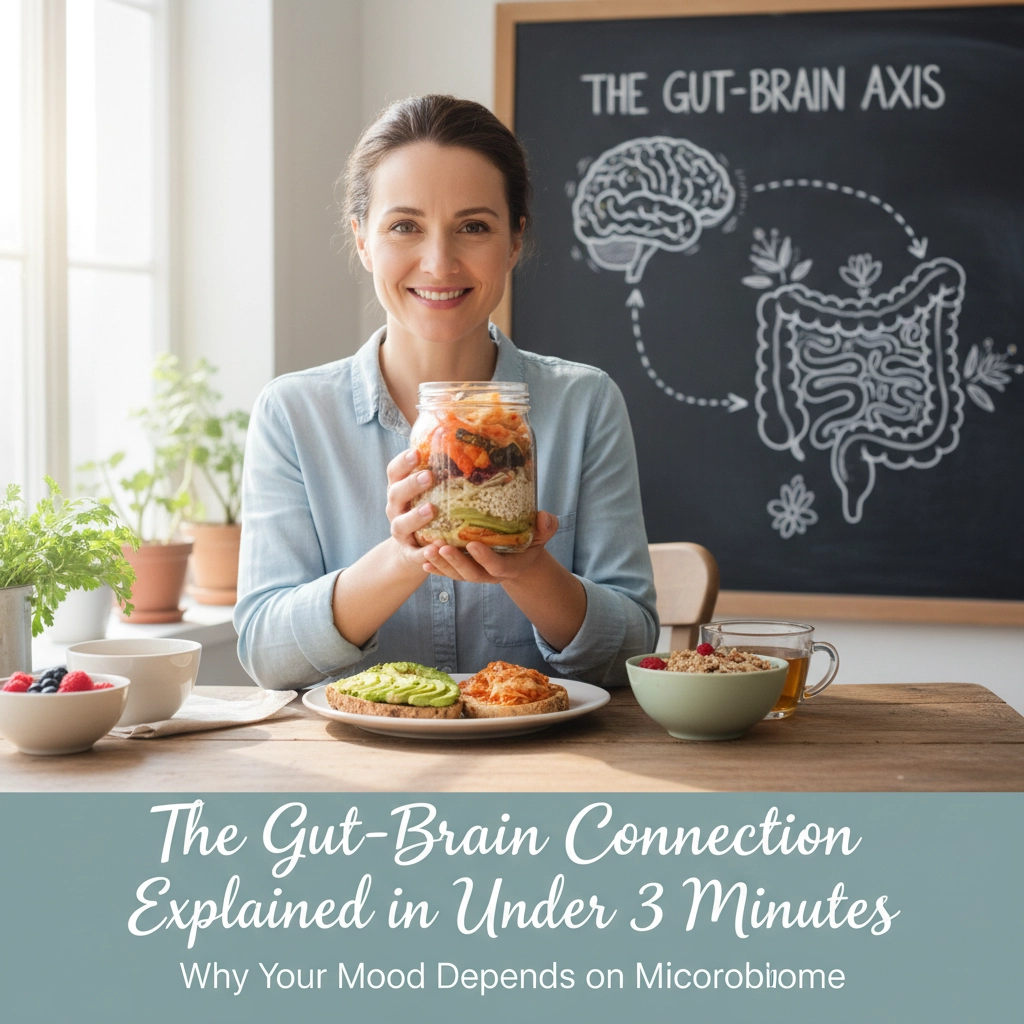Have you ever experienced "butterflies" in your stomach before a big presentation or felt that unmistakable "gut feeling" about an important decision? What you're experiencing isn't just a metaphor: it's your body demonstrating one of the most fascinating discoveries in modern medicine: the gut-brain connection. Here in South Miami, where we see countless patients struggling with mood challenges, anxiety, and digestive issues, we've witnessed firsthand how understanding this connection can transform lives.
Your digestive system houses what scientists call your "second brain," and the trillions of microbes living in your gut are actively participating in your emotional life every single day. You'll discover that your mood, mental clarity, and emotional well-being depend more on your microbiome than you might have ever imagined.
- The Revolutionary Science Behind Your Gut-Brain Highway
- Your Gut: A Hidden Neurotransmitter Factory
- When Your Microbiome Goes Off Balance
- The Daily Impact: How Your Gut Influences Every Mood
- Your Path Forward: Functional Medicine Solutions
- Simple Steps You Can Start Today
- Your Next Step Toward Transformation
The Revolutionary Science Behind Your Gut-Brain Highway
The gut-brain axis represents a sophisticated, bidirectional communication network that extends far beyond simple anatomical connections. This intricate system includes endocrine, humoral, metabolic, and immune pathways, with your autonomic nervous system, hypothalamic-pituitary-adrenal (HPA) axis, and gastrointestinal nerves all working together to link your gut and brain.
Think of the vagus nerve as a superhighway carrying messages between your digestive system and your brain. This remarkable pathway allows your brain to influence intestinal activities, including immune cell function, while simultaneously enabling your gut to influence your mood, cognition, and mental health. The close proximity between the trillions of microbes in your microbiome and the enteric nervous system neurons in your gut facilitates dynamic signal exchange: which is why experts now refer to this relationship as the microbiome-gut-brain axis.

What makes this connection so powerful is its constant, real-time communication. Your gut bacteria are continuously sending signals that can either support or sabotage your emotional well-being, depending on the health and diversity of your microbiome.
Your Gut: A Hidden Neurotransmitter Factory
Here's where the science gets truly remarkable: your gut bacteria are literally producing the same neurotransmitters that regulate your thoughts and emotions. Your microbiome creates serotonin, dopamine, norepinephrine, and GABA: all crucial chemical messengers that determine how you feel throughout the day.
The most striking discovery? Microbes in your gut are responsible for producing 95 percent of your body's serotonin: the neurotransmitter widely recognized as your brain's natural mood stabilizer. When patients visit our South Miami practice struggling with depression or anxiety, we often find that addressing their gut health becomes a game-changing component of their treatment plan.
Your gut bacteria work alongside your diet to provide and synthesize tryptophan, the precursor needed for serotonin production. When gut bacteria populations vary due to poor diet, stress, or antibiotic use, they can alter tryptophan availability, directly impacting serotonin synthesis in your brain and subsequently influencing your mood and behavior.

This means that every meal you eat, every stressor you encounter, and every lifestyle choice you make is influencing the microscopic factories in your gut that produce the very chemicals responsible for your happiness, focus, and emotional resilience.
When Your Microbiome Goes Off Balance
When your gut bacteria become imbalanced: a condition called dysbiosis: the consequences extend far beyond digestive discomfort. Research has directly linked dysbiosis to anxiety and mood challenges, revealing connections between several mood disorders, including anxiety, depression, and autism spectrum disorders, and functional gastrointestinal disruptions.
A groundbreaking study of over 1,000 Europeans found that several species of gut bacteria were missing in people with depression. While researchers continue investigating whether this absence causes depression or results from it, the correlation is undeniable and offers hope for new therapeutic approaches.
The communication between your gut and brain operates through multiple critical pathways:
• Inflammation Regulation: Unhealthy gut bacteria can trigger systemic inflammation, which directly impacts brain function and mood
• Neurotransmitter Production: As we've discussed, your gut bacteria are responsible for producing most of your mood-regulating chemicals
• Stress Hormone Regulation: Your microbiome influences cortisol production and your body's stress response system
Conversely, gastrointestinal diseases like irritable bowel syndrome often involve psychological comorbidities associated with alterations in the gut microbiome. This bidirectional relationship means that addressing one system often improves the other: which is exactly what we see with our integrative approach here in South Miami.

The Daily Impact: How Your Gut Influences Every Mood
This gut-brain connection explains those familiar physical sensations during emotional moments. Those "butterflies" when you're anxious aren't just in your imagination: they're your enteric nervous system responding to emotional states. Your digestive system contains its own network of neurons that constantly communicate with your brain, making your gut literally your second brain.
The relationship is so fundamental that the composition of gut bacteria appears influential in fetal and neonatal neurological development, suggesting this connection begins before birth. Throughout your life, your diet continues to play a crucial role in how your gut microbiome impacts cognitive function.
You might notice that:
• Stressful periods often coincide with digestive issues
• Certain foods affect your mood within hours of eating
• Your energy levels fluctuate based on your digestive health
• Antibiotic use sometimes triggers mood changes
• Poor sleep affects both your digestion and emotional well-being
These aren't coincidences: they're your gut-brain axis in action, demonstrating the intricate connections between your physical and mental health.
Your Path Forward: Functional Medicine Solutions
Understanding this connection opens remarkable therapeutic possibilities. At our South Miami practice, we've seen transformative results when patients embrace a comprehensive approach to gut-brain health. Rather than treating symptoms in isolation, functional medicine addresses the root causes of microbiome imbalance.
Dietary Interventions: We'll guide you through personalized nutrition plans that support beneficial bacteria while reducing inflammatory foods that disrupt gut-brain communication.
Targeted Supplementation: Science-backed probiotics, prebiotics, and specific nutrients can help restore microbiome balance and support neurotransmitter production.
Lifestyle Optimization: Sleep quality, stress management, and regular movement all play crucial roles in maintaining a healthy gut-brain connection.
Advanced Testing: Comprehensive stool analysis and other functional tests can reveal specific imbalances in your microbiome, allowing for targeted interventions.

The beauty of this approach lies in its holistic nature. When you support your gut health, you're simultaneously supporting your mental health, immune function, and overall vitality. We've witnessed patients experience remarkable improvements in mood, energy, and cognitive function simply by addressing their microbiome health.
Simple Steps You Can Start Today
While comprehensive functional medicine evaluation provides the most personalized approach, you can begin supporting your gut-brain connection immediately:
• Increase Fiber Intake: Feed beneficial bacteria with diverse, colorful vegetables and fruits
• Prioritize Sleep: Aim for 7-9 hours of quality sleep to support microbiome restoration
• Manage Stress: Chronic stress disrupts gut bacteria and neurotransmitter production
• Stay Hydrated: Proper hydration supports both digestive and cognitive function
• Consider Fermented Foods: Yogurt, kefir, sauerkraut, and kimchi can introduce beneficial bacteria
Remember, your mood truly does depend on your microbiome. Those trillions of tiny organisms in your gut are active participants in your emotional life, constantly producing the chemical messengers that influence how you think, feel, and behave.
Your Next Step Toward Transformation
The gut-brain connection represents a paradigm shift in how we understand and treat mood disorders, anxiety, and cognitive challenges. By addressing this fundamental relationship, you're not just managing symptoms: you're supporting your body's natural ability to produce the neurotransmitters essential for optimal mental health.
Here in South Miami, we're committed to helping you harness the power of this connection. Our comprehensive functional medicine approach combines cutting-edge testing, personalized treatment plans, and ongoing support to help you achieve lasting improvements in both your digestive and mental health.
Your journey toward better mood, increased energy, and enhanced well-being starts with understanding that your gut and brain are partners in your health. When you support one, you support both: and that's where real transformation begins.
Ready to explore how your gut-brain connection might be the key to unlocking better mental health? Schedule a consultation with our South Miami team today and discover your personalized path to optimal wellness.

